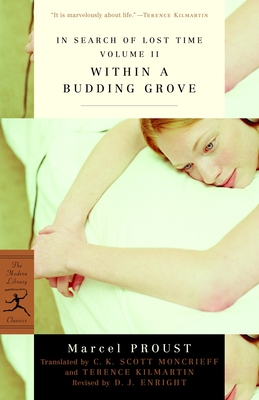I finished the second book of In Search of Lost Time over Thanksgiving weekend, and I was struck by its deliberate pace.
The Victorians move their books slowly, and I dislike them for that. Dickens in particular is a long jangle of plot twists that never seem to go anywhere, but Austen and the Brontes, too, move at a snail's pace. There are twenty thousand words for every action.
Proust moves even more slowly, but I enjoy it more. It's not the slowness of action and inaction filling the page, it's that he fills every page with thoughts. What is the narrator thinking, what does he think the person he's talking to is thinking, what is that person actually thinking, and then finally, what do they say to each other?
It's an extraordinary novel, but at times it feels like an exercise. In the same way that Joyce challenges his readers to keep up with him (spattering his pages with references to Greek mythology and the Latin mass), Proust seems to challenge the reader to follow him down the rabbit hole into his own head. His passages on memory and longing for the possible strike me the most.
I'm thankful I have an edition with key plot points summarized, because otherwise I might have become hopelessly lost in the unclear passage of time.



No comments:
Post a Comment